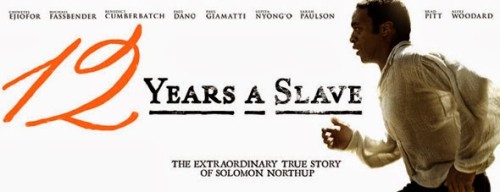 Winning the Oscars for Best Picture, Best Supporting Actress, and Best Adapted Screenplay, 12 Years a Slave continues to generate conversation among people from all over the world. The movie, based on the true story of Solomon Northup, has brought the reality of slavery in the United States to the big screen – as others before it — but this time gaining lots of attention for a production well done. The story of slavery is not new, society is still learning from the impact and damage of this glitch in time, and ultimately how that trickles down to the many different factions within our world today.
Winning the Oscars for Best Picture, Best Supporting Actress, and Best Adapted Screenplay, 12 Years a Slave continues to generate conversation among people from all over the world. The movie, based on the true story of Solomon Northup, has brought the reality of slavery in the United States to the big screen – as others before it — but this time gaining lots of attention for a production well done. The story of slavery is not new, society is still learning from the impact and damage of this glitch in time, and ultimately how that trickles down to the many different factions within our world today.
These conversations — generated by what is current on the big screen — help to shape culture and have a potential influence on discussions that help to further shape culture; this is not just within greater society, but even within the smaller sects of society, like it is within the Pagan community.
The winning award for this movie shows some, previously lacking, acceptance for movies that depict people of color as the main attraction, but also for the story itself. A moment of acceptance for the beauty and the horror of the story of chattel slavery, the subjective definitions of freedom, and the perspectives that continue to influence how people look at our history and our present. As discussions of diversity continue to flourish within the Pagan community, reflections on our past become the discussions that are mirrored in our discussions of today.
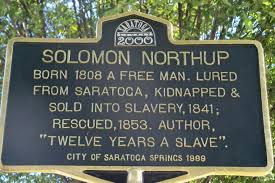 There were some incredible moments within the horror of this movie that pulled the audience in, to stay with the images on the screen. In addition to the discussions of racism, privilege, oppression, there has been a lot of discussion around actress Lupita Nyong’o award winning performance. Nyong’o, who won the best supporting actress award for her remarkable performance of some of the most heart wrenching scenes in the movie, carried the movie with her stunning performance as the slave Patsey. The harshness of the brutal damage of slavery, rape, and dehumanization was shown alongside of the reality of survival and resilience of spirit.
There were some incredible moments within the horror of this movie that pulled the audience in, to stay with the images on the screen. In addition to the discussions of racism, privilege, oppression, there has been a lot of discussion around actress Lupita Nyong’o award winning performance. Nyong’o, who won the best supporting actress award for her remarkable performance of some of the most heart wrenching scenes in the movie, carried the movie with her stunning performance as the slave Patsey. The harshness of the brutal damage of slavery, rape, and dehumanization was shown alongside of the reality of survival and resilience of spirit.
The Pagan community is expanding and understanding the levels of intersectionality within varying levels of oppression, history, marginalization, resources, and privilege, and how that impacts the way that the Pagan community functions today. Which brings us back to seeing the impact that films like this have on society, and how people within the Pagan community feel about the impact of films like this on our community.
In exploration of this topic, several Pagan practitioners responded to questions regarding their personal reflections on the movie, and on community.
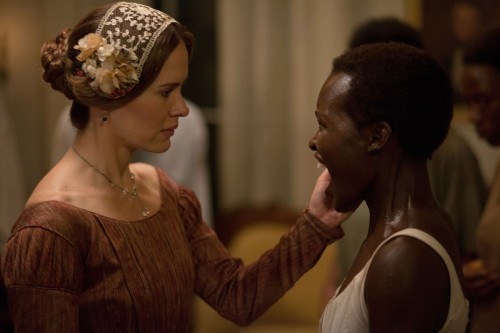
What are your impressions of the movie 12 Years a Slave?
As a student of history who has spent a considerable chunk of time on African/Diaspora/African-American history, I find the modern portrayal of such narratives on the silver screen integral to our overall understanding of our shared American history. Though I have not yet read the original writings in which the movie was based upon, I felt that the movie itself was a compelling piece which presented a very unique perspective into the slave system of the United States. – Byron Tyler Coles, student.
I am still shocked by the impugnity with which white people oppressed the people whom they had enslaved. Even the plantation owners who showed the occasional inklings of humanity still built the foundation of their entire society upon the endless suffering of those whom they considered property. – Chris Moore
12 Years a Slave brought the brutality of slavery home to me in a way that I’ve never experienced before. Knowing that slavery happened and was awful from an intellectual standpoint was completely different than seeing it shown on the faces and bodies on the screen. My heart broke again and again, seeing the atrocities that are only one small percent of what life must have been like for those enslaved. It’s a knowing that doesn’t go away, that personalized slavery in a way that wasn’t personal before. – Del
I was deeply saddened by this film. It was heart wrenchingly painful to view the treatment of my ancestors, and more painful still to consider that although many things have changed, many have remained the same. We have no plantations in the 21st century, we have prisons overflowing with African American male bodies. We have no plantation Overseers in the 21st century, we have police officers whose unchecked brutality is often directed at African American males and ended the lives of Oscar Grant and Trayvon Martin. We don’t have female house slaves in the 21st century but we do have African American women whose faces remain unseen, voices remain unheard, stories remain untold, and whose experiences, cultural contributions, and lives remain undervalued. – Heaven Walker, Dianic High Priestess
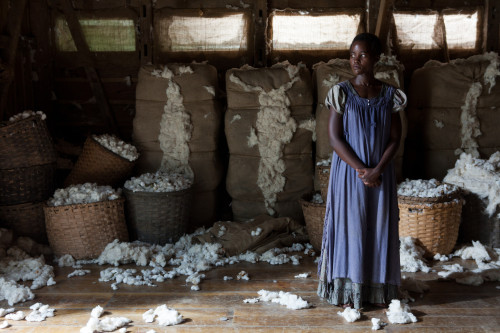 How do you think a movie like this has an impact on the overall culture of society?
How do you think a movie like this has an impact on the overall culture of society?
Many have refused to see this movie because it is “too depressing” or because they “already know about slavery” or because it “isn’t like that today” and fail to see its relevance to current day race relations and culture. Some saw this movie and said “that’s terrible, I had no idea things were that bad” and then went out to dinner at a 5 star restaurant and failed to notice that most of the waiters or bussers were people of color and most of the customers were white. Some saw the similarities between then and now and were deeply moved. And a tiny but mighty few saw the film, understood its relevance and importance, and said “what can I do?” – Heaven Walker, Dianic High Priestess
Unfortunately I am afraid that I will not have a lasting impression on the overall culture of today’s society, and this is due to a variety of reasons. Most particularly for younger adults, we have been barraged with a rather imbalanced and historical unsound idea of American history concerning slavery. I believe this can be seen in our fairly unsettling ability to address racism, colorism, and etc in the country today let alone throughout the centuries. However, it does for a split second bring to light such a conversation that too often loses steam once the Hollywood award season is over with. – Byron Tyler Coles, Student.
To be honest, as much as I would like to think that 12 Years a Slave would change the culture of Silence and Denial that permeates the US, I have little hopes that a movie by itself, no matter how well done, could effect the kind of change needed. But I do think that it helps bring the history of violence and oppression in to the national dialogue. I don’t think that it will change the minds of those who are willfully ignorant, sadly, but I think that just talking about it is a way of breaking down the walls of cultural cognitive dissonance that have permeated the US. This movie reminds us that you can close your eyes, you can not look – but it happened – these stories are real, these people, and hundreds, thousands, millions, of others, were hurt – and no, you didn’t hurt them, but how are you helping?
And also, I wouldn’t presume to speak for African American people, but I would think that in some ways, as hard a movie as this was for both descendants of oppressors and oppressees, it’s also very powerful – to have your history validated, to have your cultural stories taken seriously and displayed with sensitivity. And if the movie won’t change the mind of those who’ve chosen to shut their eyes, I think that it has the power to lift up those who have felt silenced, and give their history a voice. – Del
I felt really conflicted about the movie. I do think its a really important movie for white people to see, because it takes slavery, a situation that they could in no way relate to or understand, and makes it relatable by having it happen *to* someone who was free. Since he was a free man who was kidnapped, everyone can see the horror of how wrong that was, and can put themselves in his shoes. However, what left my conflicted was realizing that the filmmakers were invoking little empathy about what was happening to the rest of the slaves. They do of course show the horrors of what happens to them as well, but you leave the theater feeling good about his wrong being righted at the end, and never look back and think about the rest of them. I think that is why this movie is so successful because everyone can relate, which is also why I think its important for white people to see, but at the same time I think it devalues the lives and stories of the rest of the slaves. In the final scene where he is reunited with his family, like everyone in the theater I was crying, but shortly thereafter I realized, “Wait, why am I crying for him and not the other slaves? Why is his story so much more tragic?” Because this happened *to* him, He is not “supposed” to be a slave, therefor its wrong. The rest of the slaves were born into it, so for them it’s just the way it is, but for him, it was wrong. – Ellie Bryan, Musician.
I think there is actually a danger here that the more privileged among us will take solace in the idea that slavery is somehow “over”, or that the institutional, generational oppression of people of color is not alive and well in the here and now. The events in this movie need to be seen as the antecedent of our current reality. – Chris Moore
I hope it does. Just last week my children’s supervising teacher said to me and the boys “racism is over, thing are equal”. Upon seeing the look of shock on my face she said “I mean, at least for me it is”. And honestly I don’t know if a movie like this, about the past, can change someone’s mind about today. – Melanie Moore
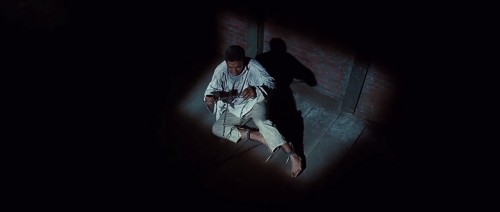
Do you think this particular movie, and movies like this, has an impact the culture within the Pagan community? Why or why not?
I think only time will tell, though we are ultimately a sub-culture in and of ourselves, we are none the less part of the mainstream culture. In religious practices that originate in cultural specific locales, I believe it is essential that we understand how ethnic nationalism can affect our religious traditions in modern pagan practices, and how it influences us to understand American history and other individuals. – Byron Tyler Coles, Student
We Pagans are generally open-minded. The danger of this attitude can be complacency, or an unwillingness to further examine our assumptions. I think this movie can raise the awareness of those Pagans who are willing to feel uncomfortable and challenged. – Chris Moore
I would like to think that this movie would have great impact on pagan culture, and there are many groups such as Reclaiming and Come As You Are Coven who are not only committed to Social Justice but consider cultural education and social justice activism to be part of their magical practice and deeply linked with earth based spirituality. And there were far too many in the pagan community who did not see this film because they were convinced that it had nothing to do with them or their experience and did not connect with the idea of “Perfect Love and Perfect Trust” on a sociocultural level.- Heaven Walker, Dianic High Priestess
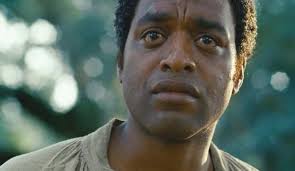
How can movies like this impact individuals within the Pagan community’s ability to understand the impact of historical oppression on diversity today?
Magic and movies are both visual mediums, and often experiential; what we see often becomes truth. The truth is informal censorship of slavery through film history is a dialogue that extends far beyond the visual medium; and we as a country have done little to truly understand and reflect on our history and the real human impact of slavery. 12 Years a Slave reveals itself as one of the first major film attempts to explore slavery not as a political institution (“Lincoln”) or as an individualist fantasy-land in which any slave could take on an army of whites if they “wanted” to ( “Django Unchained”) but as it was actually experienced to those who endured it. It is authentic truth, much like magical experience is authentic truth.
For the Pagan Community, when we come to the table of authentic experience we come to feel, know, honor, and begin to heal. As Pagan’s we step further into the dialogue that we visualize in 12 Years a Slave that is still experienced today, by using magic to transform our nation’s legacy of power, privilege and oppression into a future of Love. To me this is the films greatest impact, the impact of truth. – Erick DuPree, writer, magic maker
I honestly think that no one movie could enlighten a mind to the historical basis of racism in America today, if that was possible it sure wouldn’t be a movie I would be breaking down doors to see. Unfortunately our shared, national history is marred with racial, sexual, and social-economic classism that for some, is just too hard to swallow. And thats alright, however, we must not let the discomfort be the excuse to address such occurrences of yesterday or today. I am strong believer that if new knowledge doesn’t make you uncomfortable knowing, or pondering, it is not worth learning at all. Movies such as 12 Years A Slave, Beloved, and so on can give us great insight into cultural and religious history within our nation, allowing us to embrace the good and reflect on the ugly. We can look to our nation’s history as religious/spiritual/ethical narratives of truth in showing what not to do, how to prevent, yet present us with the challenge of understanding them today. – Byron Tyler Coles, Student
I hope that the ability for everyone to relate to the wrongs being done to him would help pagans understand historical oppression, although I don’t know that a misunderstanding of historical oppression is necessarily an issue within the pagan community (I think most pagans understand that their people and ancestors were oppressed and oftentimes decimated by Christianity, so I would think that the ability to relate to oppression would already be there) – Ellie Bryan, Musician.
That’s the problem. There was no “happy ending” for the vast majority of enslaved people. I hope people look around and see that new systems of oppression have been consciously and unconsciously built upon the ruins of slavery, including other forms of actual slavery! – Chris Moore
How does the presentation of Lupita Nyong’o challenge perceptions of womanhood and beauty on and off the screen?
The character Patsy gave a very strong portrayal of women during the times of slavery. Often the male experience is focused on and the experiences of women are invisible. However, this showed the truth of the female experience and how women endured not only brutality, but sexual abuse, the loss of their children, the contempt of their mistresses and fear for their lives. Lupita won a much deserved award for this performance and the illumination of black female experience. She is also being celebrated for her beauty and talent and is a positive image for black women today who are constantly confronted with negative stereotypes of African American women and feel unseen and undervalued in our culture. – Heaven Walker, Dianic High Priestess
I think she is exoticized both on and off the screen. In american/western culture oftentimes dark-skinned women are not considered beautiful. However Nyong’o’s foreign-ness allows for an exception to this rule, she is exotic and therefor beautiful. I think her presence in the media is a step in the right direction for breaking down barriers that block dark-skinned women from being accepted as beautiful, however, it’s like everything she does is amazing, simply because she is exotic. If her exoticism was taken away, would she still be as fascinating? I can’t say for sure. If she was a dark-skinned girl from America would she receive the same treatment? I don’t know – Ellie Bryan, Musician.
While there are many differing opinions and interpretations on this film, it is obvious that a film like this can generate some very important conversations and discussions within our community on topics of race, history, and our collective futures. I personally found it refreshing to see so much conversation happening in the Pagan community around this one movie, because it gave a silent permission to talk about some things that are usually not open for discussion. These conversations might eventually lead to a more empathetic, and culturally sensitive society in general, and within the Pagan community as well. As a microcosm of the macro society, every chance to understand and challenge perception is one that the Pagan community can grow from.
**Special thank you to those who took the time to answer the questions for this piece.
The Wild Hunt is not responsible for links to external content.
To join a conversation on this post:
Visit our The Wild Hunt subreddit! Point your favorite browser to https://www.reddit.com/r/The_Wild_Hunt_News/, then click “JOIN”. Make sure to click the bell, too, to be notified of new articles posted to our subreddit.
Thank for this discussion. It is heartening to see discussion of this film, and the reverberations of this country’s history of enrichment and national identity formation at the expense and through the labor and exploitation of an enslaved labor force. As a Pagan of color, this impacts my relationship to my country, the land itself, my politics and my spirituality. For a community to which I have belonged for over twenty years but in which I can still feel marginalized and isolated, it is important to wrestle with these questions as we grow more diverse and hope to be seen as a more inclusive and evolving community.
Of course, no one else cares.
Films like this make me rejoice my ancestors were merely enslaved by the Romans.
People tend to gloss over the fact that slavery is a long standing part of history, and that it was commonly practised by pre-Christian cultures.
I don’t think it’s glossed over, so much as the ramifications of the American slave system are ongoing to a dramatic extent in our culture. (And, like it or not, American culture is a large part of the global culture thanks to the hugely successful and popular entertainment industry here.)
Also, the American slave system had important structural differences from previous slave systems (which is not to say that being a slave was a walk in the park before, but it was a different experience).
Historically, American culture is not that significant, globally. Not denying the impact of commercial slavery, or its ongoing legacy, merely pointing out that slavery is common throughout history and the rejection of it is fairly modern.
I like the fact it was Brad Pitt who finally got word to the protagonist’s family of his whereabouts.. Just a Cameo role, but it left him on the right side of political correctness spectrumfor the foreseeable future.
Thank you for this. I think portrayals of the lives of people who were slaves are incredibly important, not just because it’s important to remember our awful history lest we repeat it, but also because (as was pointed out in the article) it’s easier for people to form emotional connections to these issues when they’re presented in a movie or novel, than it is when you’re just reading bare facts about what happened. This is why storytelling is so important. And being impacted by these stories, emotionally and intellectually, is important because our society is still dealing with the fallout from slavery even today.
Very well put. And storytelling might just be our most powerful means of social magic that we have today.
I think this movie was important because it showed Solomon Northrup free as a white person was free prior to being enslaved . All the slaves were free prior to being enslaved . But “civilized folks”, at that period in history , were able to view them as savages because they were in their native tribal state in Africa , and thus able to objectify them in their minds as less than human .
I’m not generally a big movie person, but this is one I’ve been rather excited to see. I believe films such as this have the unique opportunity to get people talking in ways that simple facts, news stories or history classes don’t have. I have worked in the past with modern Anti-Slavery groups, and continue to be supportive of their cause. In the US alone there is a conservative estimate of 100,000 slaves today. Of that, an estimated 30,000 are forced in to prostitution, the porn industry or kept as sexual slaves. The rest are domestic or “worker” slaves forced to work on farms, in factories, as maids or nannies or other “working” roles within homes & businesses. While modern day slavery is not the focus of this film, it allows the subject to be approached within every day conversations – bringing awareness, funding and much needed support for these very worthy causes.
This is an important film and I really hope it opens the way for further exploration and popular discourse. I would really like to see more movies about black people as the agents of their own liberation and more movies that explore the legacy of slavery.